Why Do Birds Sing? Here Are the 7 Reasons
Last Updated on
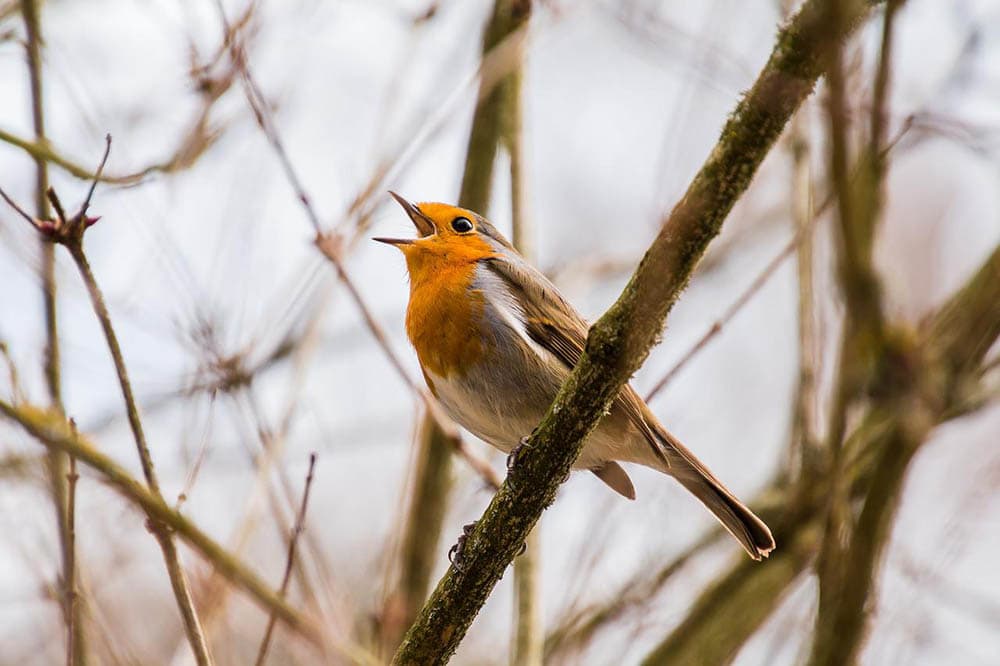
Nature’s melodies are enchanting. From the chirping of crickets to the howling of wolves, these sounds are often fascinating and mysterious. Birdsong is one of the most beautiful sounds in nature. There are many theories about why birds sing. Some say that it is to mark their territory, while others believe that it’s a way for birds to communicate with one another, attract mates, or show off their skills.
Different species may sing more intensely at certain times of the day or night, and these subtle differences send subtly different messages to nearby birds. If you dig into the details, birdsong can be a vast area of study, so let’s take a look at a few key ideas.

The 7 Reasons Why Birds Sing
1. Territorial Song
Birds sing to establish and defend their territory. The song is often complex and can be used to identify individual birds. The purpose of the song is to let other birds know that this territory is taken and they should go somewhere else. Nearby birds are alerted by a loud, intricate song that a healthy male is already occupying the territory. Birds that want to challenge him for his territory can gauge their chances of success based on the complexity and strength of his song.
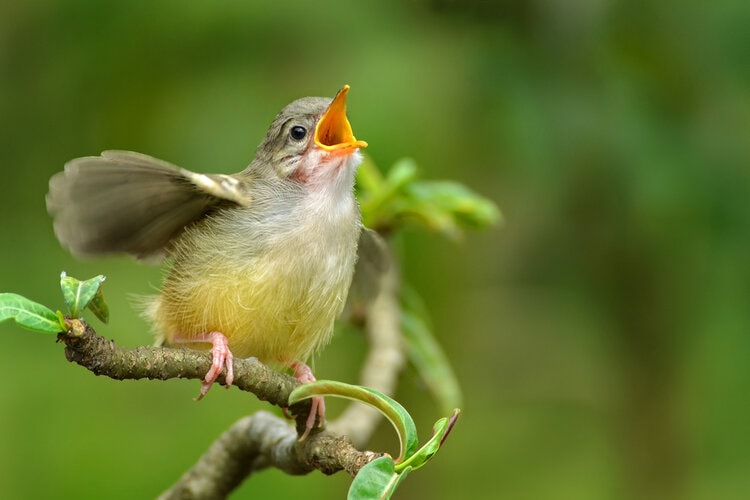
2. Singing at Various Times During the Day
Different bird species sing at different times of the day, usually corresponding to their activities. For example, songbirds that are active during the day typically sing early in the morning, while nocturnal birds like owls typically sing at night. Some birds, like crows, will sing at various times throughout the day depending on what they’re doing. The reason for this is likely due to the fact that birds use singing as a way to communicate with each other.
3. Finding a Mate by Singing
One popular hypothesis for why birds sing is to attract a mate. The theory goes that males sing elaborate songs in order to show off their vocal prowess and attract a mate. Females then choose the most talented singer as a partner. There is evidence to support this theory, as male birds that sing more complex songs are more likely to mate than those that don’t.

4. Courtship Duets
Birds sing courtship duets to declare their intentions to potential mates and to strengthen the pair bond. In many species, the male and female sing together, with the male typically providing most of the song. The songs are often very complex, with males and females singing different parts that are timed to coincide with each other. The purpose of the duet is not fully understood, but it may serve to demonstrate the fitness of the singers or to keep the pair bonded together.
5. General Communication
Birds have a wide variety of calls that they use for different types of communication, but they can also use songs more generally. Birds can use simple, basic songs to alert a mate to a new food source or take their turn sitting on eggs, or keep in touch with the group while flying.
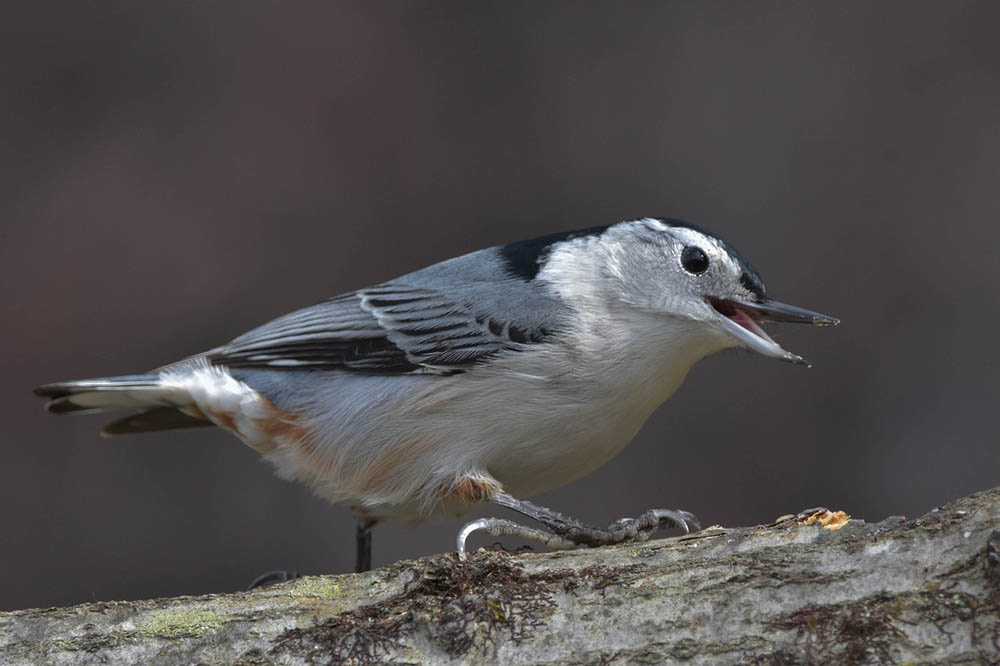
6. Singing for Joy
Birds may sing for pleasure as well, according to some ornithologists. While more research is needed since bird emotions are still not well understood, it’s possible birds enjoy singing with other birds nearby. Often, when birds sing without territorial or courtship concerns, the beauty of the song and the pleasure of singing it may be the reason they sing.
7. Predator Warning
Birdsong can be used as a predator warning to neighboring birds and animals. The alarm call is used to indicate the presence of a predator and to warn others to take evasive action. The alarm call is usually a high-pitched shriek that is difficult for predators to localize. By giving an alarm call, the bird hopes to scare the predator away and protect itself and its group.

What Exactly Is Bird Song? How Is It Different From Other Bird Vocalizations?
Bird song is the most recognizable of the sounds birds make, but it is not the only type. In general, songs are more musical than other calls, and they often incorporate a range of pitches and rhythms in one singing pattern. Birds can produce more than one tone simultaneously, because of their specialized syrinx (their equivalent of a voice box) which allows them to produce independent sounds in different parts of their trachea. Songs can last anywhere from 2 to 10 seconds and are frequently repeated in long sequences.
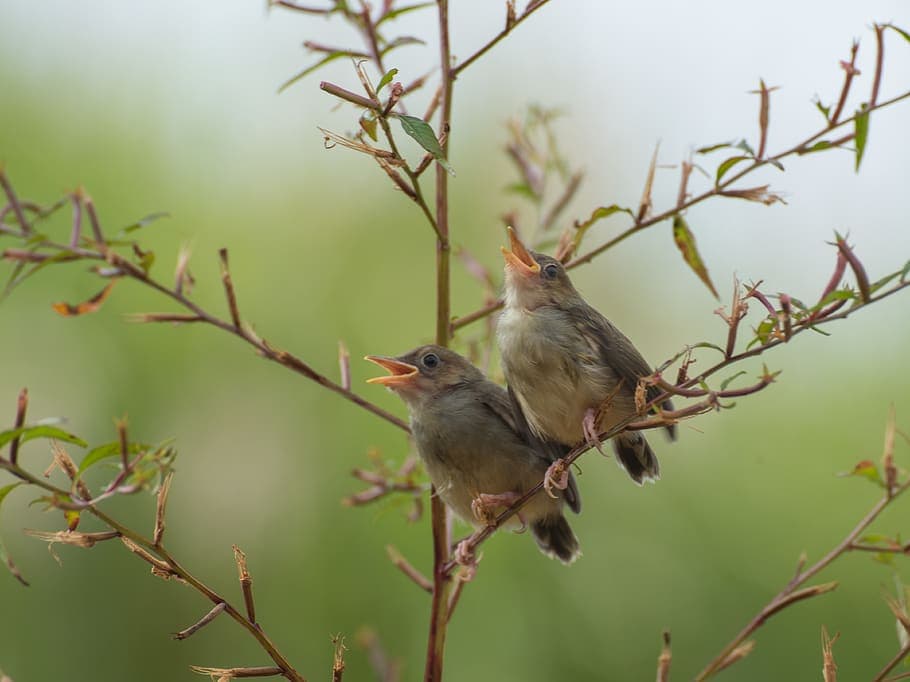
How Do Birds Sing?
The syrinx is a vocal organ found in birds. It is located at the junction of the trachea and the bronchi and consists of modified cartilage rings. When a bird inhales, air flows through the syrinx and causes the cartilage rings to vibrate and produce sound. The pitch of the sound is determined by the size and shape of the syrinx, as well as by the tension of the vocal ligaments.
Why Do Some Birds Sing More in Spring & Summer?
Some bird species sing year-round, but most sing from late winter to early summer. Songs are crucial during this time of year when birds mate and therefore need to claim territories, attract mates, and strengthen pair bonds, and songs play an important role in this process. Birds that sing year-round are less likely to migrate and are therefore more likely to defend their territory and remain with the same mate throughout the year, which increases the need for year-round songs.
Why Do Birds Need to Practice Singing?
Birds need to practice singing in order to develop their songs. The songs that they sing can be used for mating rituals, territory marking, and communication. The more a bird sings, the better it gets at singing and the more complex its song becomes.
Why Can Singing Be Dangerous for Birds?
Although singing grants a bird prime territory, a healthy mate, and a place to raise their young, producing loud, clear sounds requires a lot of energy and calories. In addition, these sounds can easily attract predators and make the singer more vulnerable.
Why Do So Many Birds Sing In The Morning?
The dawn chorus is a term used to describe the collective sound of birds singing at sunrise. This phenomenon is observed in many parts of the world and there are several theories as to why it occurs. One hypothesis is that the birds are communicating with each other, possibly coordinating their activities for the day. Another theory is that they are announcing their presence to predators and rivals in order to avoid confrontation. Whatever the reason, the morning chorus is a beautiful sight and sound that should be enjoyed by all.
Why Do Male Birds Sing Most?
This is because the male birds use songs to attract mates and defend their territory, while the female birds do not need to sing as often to attract a mate or defend their territory. Male birds also tend to be more territorial than female birds, and the song is a way for them to signal their dominance over other males.
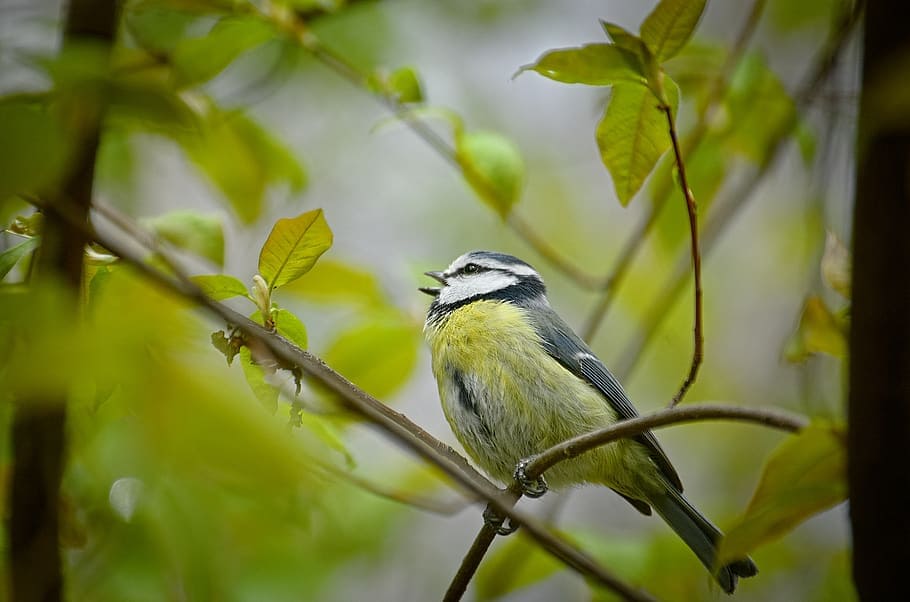
Do Birds Sing When They Are Happy?
Birds sing for a variety of reasons, including to communicate with other birds, to mark their territory, and to attract a mate. It’s unclear whether birds sing when they are happy, but it’s possible that they do. Studies have shown that birdsong is associated with positive emotional states in humans, and it’s possible that the same is true for birds. Some people believe that birds sing because they are happy, and there is some evidence to support this claim.
Related Read: Why Do Owls Hoot? 4 Reasons for This Behavior

In Conclusion
Birds sing for many reasons. They may sing to declare their territory, to signal their health, to court their mate, or send general messages to other birds. They may also sing simply because it makes them happy. Some scientists believe that birds also sing for pleasure.
While the many reasons why birds sing are still being studied, one thing is for sure: their songs are beautiful and add to the natural beauty of our world. So the next time you hear a bird singing, take a moment to appreciate its beautiful song and all the reasons why it might be singing.
Featured Image Credit: Pfüderi, Pixabay
Table of Contents
- The 7 Reasons Why Birds Sing
- What Exactly Is Bird Song? How Is It Different From Other Bird Vocalizations?
- How Do Birds Sing?
- Why Do Some Birds Sing More in Spring & Summer?
- Why Do Birds Need to Practice Singing?
- Why Can Singing Be Dangerous for Birds?
- Why Do So Many Birds Sing In The Morning?
- Why Do Male Birds Sing Most?
- Do Birds Sing When They Are Happy?
- In Conclusion
About the Author Robert Sparks
Robert’s obsession with all things optical started early in life, when his optician father would bring home prototypes for Robert to play with. Nowadays, Robert is dedicated to helping others find the right optics for their needs. His hobbies include astronomy, astrophysics, and model building. Originally from Newark, NJ, he resides in Santa Fe, New Mexico, where the nighttime skies are filled with glittering stars.
Related Articles:
10 Types of Hummingbirds in Arkansas (With Pictures)
8 Types of Hummingbirds in Nebraska (With Pictures)
5 Types of Hummingbirds in Idaho (With Pictures)
3 Types of Hummingbirds in Mississippi (With Pictures)
8 Types of Hummingbirds in Kansas (With Pictures)
5 Types of Hummingbirds in West Virginia (With Pictures)
5 Types of Hummingbirds in Ohio (With Pictures)
Where Do Nuthatches Nest? Nuthatch Nesting Habits Explained
